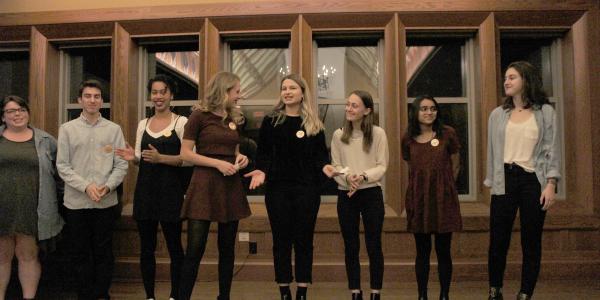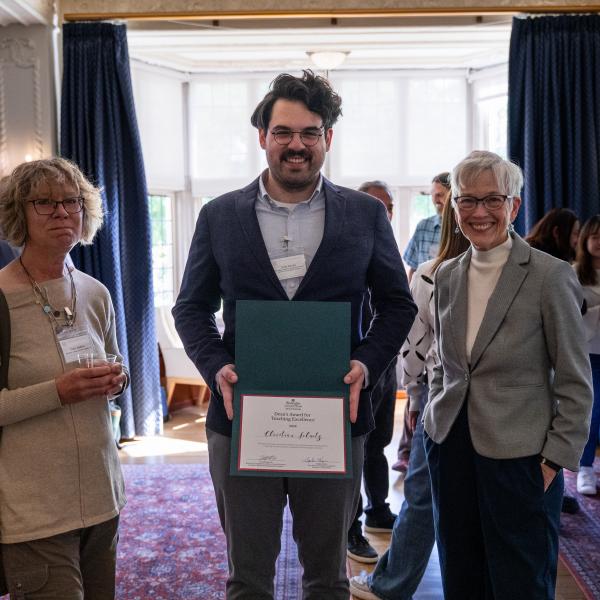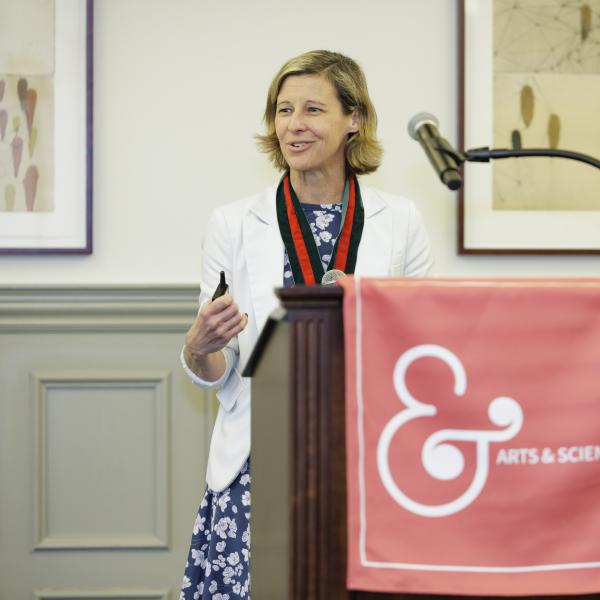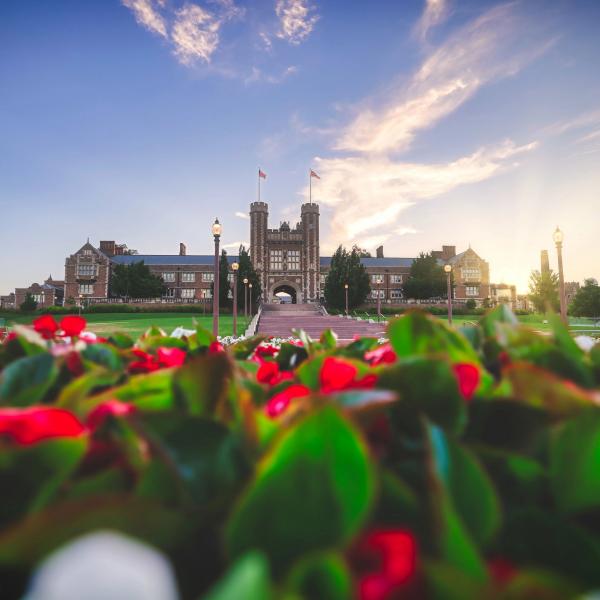The first time I listened to The Moth on NPR I remember feeling the unshakable sense that I wanted to be a part of it in some way. The Moth is a national storytelling event, with each “Story Slam” centered around a predetermined theme. The themes invite abstract interpretations, from the humorous to the heartbreaking, and the storytellers themselves settle somewhere between a Ted Talk speaker, a standup comedian, and a memoirist. It is an evocative, exciting blend and, lucky for me, a version exists right here at WashU.
Unscripted is a live storytelling event hosted once a semester. As the name suggests, there is no script or memorization component, but rather the speakers are asked to share their stories. Three artistic directors (I will reveal the source of my expertise to tell you, reader, that I’m one of them) follow the structure of The Moth—selecting a theme for all storytellers to abide by. Past themes include “Firsts”; “Mismatched”; and “Out There.” This year, on November 9th in the DUC Formal Lounge, Unscripted’s “Late Bloomer” Story Slam took place.
First, a bit more on the structure of the event itself. The three directors, myself, Katy Brainerd, and Isabella Levethan, select the theme early on and compose an application. The application includes a prompt that functions as a means to set the tone for the event—this year’s invited traditional interpretations of late-blooming, but also encouraged more abstract interpretations: WashU is a school comprised of high-achieving, high-functioning students, but this theme offered an opportunity for the WashU community to speak to a time when they were a bit behind the curve. The application asks each applicant to apply with a three sentence summary of a story that they feel they could speak on for ten minutes, and the artistic directors select six speakers who will be workshopped in the time leading up to the event.
Levethan, one of the directors, says, “Producing Unscripted has allowed me to find a community of writers and storytellers on campus, and has connected me with people I would have otherwise never crossed paths with. Working with students and being able to watch their stories evolve is an incredibly powerful experience, especially considering that these people are opening themselves up and talking about intimate topics that they would never share in any other space.”
This year’s event featured performances by Dana Citrin, Jordan Dubin, Genevieve Leach, Dan Sicorsky, Saryu Sanghani, and Sabrina Odige. The speakers range in their majors and extracurricular interests on campus, making for a group that was really representative of WashU and all its varied communities. In the DUC Formal Lounge, students spilled out onto couches and chairs and listened, laughed, and cringed at stories about parents, friendship, and love, but also about a particularly slobbery kiss, about being a nude figure model, and about finding meaning through Craigslist.
One of the speakers, Sabrina Odige, addressed the value of this experience on a broader scale and to the event’s role on campus, saying, “It’s so easy to get caught up in the monotonous grind of school and routine that it takes a conscious effort to check back in with ourselves and each other to remind ourselves that we’re human.” She continued, “Unscripted is so great for that because storytelling has the ability to take us places we’ve never been before and live vicariously through one another, creating a wonderful community experience.”
This gets at the essence of Unscripted’s role on campus: it grounds us in our shared experiences, providing a space for a meaningful sense of empathy. Another one of the speakers, Saryu Sanghani, noted this, stating, “Unscripted was an incredibly novel experience for me at WashU. It created a space for vulnerable storytelling, and I was so honored to have a chance to stand in front of my peers and share a part of my life that has shaped who I am.” Sanghani’s comment hints at another nuance of this experience: it allows us to get a peek into life before WashU, allowing those who attended and listened to see the vast array of experience that cultivated, and continues to cultivate, our growth as students and as people.
After the show, Unscripted’s participants and attendees have continued to express their enthusiasm for the event and their admiration for its success. It seemed to be a special, meaningful night, but, still, a singular night. Days after the event, though, a friend told me that someone she knew was talking about Unscripted, and it prompted a discussion around their table about what everyone’s late-bloomer story would have been. Imagining this conversation, happening around a table here on campus, prompted by storytellers and peers who’d performed on a stage days earlier, was a striking and satisfying way to think about the event’s impact. A reverberation of some small sense of empathy, some interest in the story we’re all telling.




